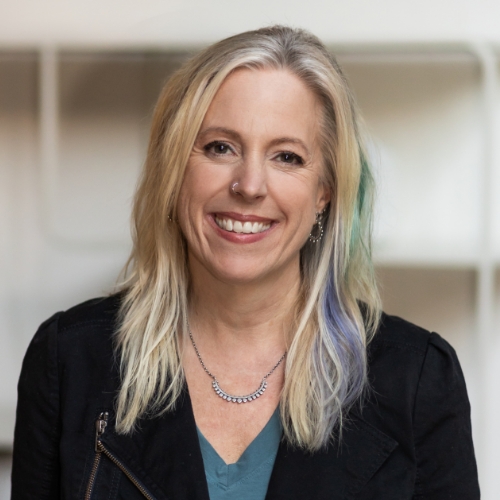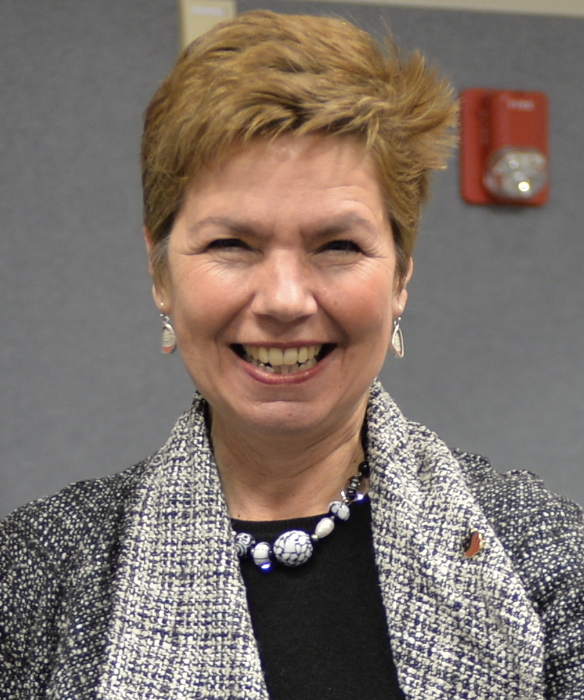Lykos Therapeutics had planned to be the first company to bring PTSD patients a much-needed new treatment. Then in May, an influential outside group raised serious concerns about how its trial was run. The next month, the FDA’s panel of experts picked apart the company’s results.
Two weeks from now, Lykos will find out if that’s the end of the bad news or just the start.
 Amy Emerson
Amy EmersonThe FDA is soon scheduled to rule on whether to approve Lykos’ MDMA-assisted therapy to treat post-traumatic stress disorder. It’s widely expected that the agency will reject the drug, though the company’s CEO Amy Emerson said it’s preparing for a number of options, including the agency asking for more data, or turning down the drug but asking for another trial.
“A delay is something that everybody’s got in their minds as a, you know, significant possibility,” Emerson told Endpoints News in a nearly hour-long interview last week.
Needing a new trial, naturally, would be harder to pay for.
“That is a much longer timeline and that’s a different circumstance for raising money,” she conceded. Emerson said Lykos has enough cash “to keep working on what we need to work on.”
At the heart of the company’s recent struggles are two Phase 3 studies, which showed that patients given MDMA in three sessions had a statistically significant improvement in PTSD symptoms. But most patients were able to correctly guess that they’d received the drug and not a placebo, raising doubts about the integrity of the results. And Lykos didn’t collect data on patients’ positive side effects when on the drug, which could potentially inform addiction risks.
Those problems became the centerpiece of an FDA advisory committee meeting in June, at which the agency’s outside experts voted overwhelmingly against recommending the drug.
“I do think that we underestimated the amount of pushback there was going to be from other external people that would then call into question the program,” Emerson said.
A negative decision from the FDA would imperil decades of work into MDMA’s potential therapeutic benefit. Lykos’ research originated from the Multidisciplinary Association for Psychedelic Studies (MAPS), which launched in 1986 before spinning out its MDMA program into a public benefit corporation in 2014, known as MAPS PBC. Emerson has worked on the PTSD-specific clinical program since 2003 and MAPS PBC rebranded to Lykos earlier this year.
Other companies are nipping at Lykos’ heels. Compass Pathways is closest, with a Phase 3 study testing psilocybin — the active ingredient in psychedelic mushrooms — in patients with treatment-resistant depression. Fellow psilocybin biotech Cybin is gearing up for its own late-stage trial this year.
“We were also a test case that helped to develop what the understanding is now,” Emerson said. “It couldn’t have existed before we did this.”
Lykos defends key studies
Heading into the June 4 advisory committee meeting, Lykos believed it had a strong working relationship with the FDA.
“They’ve had a long time to understand this submission,” Emerson said. She expected that the advisory committee would be a mixed bag, particularly because it’s been more than 20 years since the FDA approved a new treatment for PTSD.
“What we didn’t expect was how much stigma there still was around the disease state,” Emerson said.
While top FDA officials have talked about decreasing their reliance on advisory committee votes on up-or-down recommendations for drugs, the regulator still often convenes the groups when new types of therapies are before the agency.
In addition to questions about patients knowing they were on MDMA, there were concerns about a follow-up study, called MPLONG, in which a number of patients took other nonstudy psychedelics between the end of their original study and enrollment in MPLONG.
Emerson doesn’t regret allowing people to take other psychoactive drugs between studies, saying the goal was to have participants return to “normal life.” But she wishes that patients from both pivotal trials entering the long-term portion were kept blinded, rather than just one.
There were also questions about how the company collected data, including monitoring the risk of abuse of MDMA, which the federal government puts in the same category for risk of abuse as heroin. Emerson said there was an agreement with the FDA on what abuse liability data to collect, despite the agency saying that it had advised Lykos “to collect adverse events that are associated with abuse.” FDA reviewers told Lykos in a 2017 meeting that it would not require additional animal or human trials to assess the abuse potential, citing prior research funded by the National Institutes of Health, according to the agency’s June briefing document.
The FDA did not respond to a request for comment on what guidance was transmitted to Lykos.
And, of course, there was a case of sexual misconduct in one of Lykos’ Phase 2 studies, according to a report by the independent pricing group ICER, in which a psychiatrist and her unlicensed therapist husband reportedly had “intimate physical contact” with a patient in a “mind-altered state.” Lykos said in a statement following the report that it’s working with all relevant parties “to help protect patients and mitigate the risk of misconduct of any kind.” The therapists in question were banned from working with Lykos again.
Preparing for approval, unsure if it will happen
Despite all of this, Lykos is preparing for a commercial launch of the drug should the FDA approve it. It’s built a three-part plan meant to calm skeptics, including an advisory board of experts in medical ethics, psychiatric and military affairs and other disciplines, Lykos said.
The other parts of the plan include working in close partnership with large behavioral health hospitals like Hackensack and Emory University and partnering with other psychedelic stakeholders to help train therapists.
 Loree Sutton
Loree SuttonThe advisory board includes Loree Sutton, former commissioner of the New York City Department of Veterans’ Services and once the highest-ranking psychologist in the US Army. She’s been a follower and advocate of MDMA’s potential to treat PTSD, especially in veterans. She said in an interview that Lykos was “embracing the ethical dimensions of this work” and appreciates joining other stakeholders in advising a possible rollout.
“We cannot afford another 50 years of prohibition,” Sutton said, who suggested that future head-to-head trials against the standard of care for PTSD could be one way that MDMA rights the clinical ship.
Sutton expects the council to be maintained regardless of the outcome by the FDA, saying there’s still a “groundswell of momentum with these drugs, led by MDMA.” She added that if she feels the work to bring the drugs to market is unethical, “I’ll be the first to remove myself.”
Other members of the board include former assistant US attorney and corporate lawyer Rob Chesnut and Emory University professor Barbara Rothbaum.
Lykos hopes its treatment could puncture an underserved PTSD market that’s expected to be worth $3.2 billion in the US by 2034. Two selective serotonin reuptake inhibitors (SSRI) are approved to treat the condition, but remission rates are less than 20-30%, according to the FDA. The potential for Lykos to reach the market in 2025 galvanized a $100 million private financing in January, led by Helena. The raise also included a foundation led by Alex Cohen, wife of New York Mets owner Steve Cohen, and True Ventures, among others.
As for Emerson’s future leading Lykos, she says she has not been asked to resign in the weeks since the advisory committee but that she’s “not wedded to necessarily a specific title.” She acknowledged it may take a different skill set than her years of clinical development experience to take the company forward.
“I’m also interested in evolving the leadership of the company,” Emerson said. “I don’t know what my role will continue to be once we get through approval, and I want what’s best for this.”